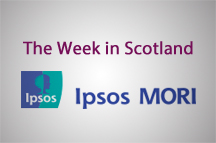 Brexit and a second independence referendum
Brexit and a second independence referendum
The headlines in Scotland this week have largely been the same as across Europe – what will the Prime Minister’s speech laying out the UK’s negotiating position on Brexit mean, and how will our European partners react?
But here, of course, there is an additional dimension. Any pronouncement on Brexit is immediately followed by commentators furiously trying to gauge whether or not it makes the prospect of a second independence referendum more likely, and in what timescale.
Ever since the vote for the UK to leave the EU on June 23rd last year, in the face of nearly two-thirds of Scots voting to ‘Remain’, the First Minister has been clear that indyref2 is ‘highly likely’ to happen – we just don’t know when. And although Ms Sturgeon has ruled out a referendum in 2017, the PM’s speech this week, stating her intention to leave the single market, consequently led her to state that a second vote is now ‘undoubtedly closer’.
The brutal truth is that, not unreasonably, the First Minister wants to control the timescale for a second referendum and wants it to be held when she is most likely to win it. That would require the sort of shifts in public opinion which have, so far, not been evident since June 23rd. In truth there has been little movement in the polls since then, with support for independence still around the same level it was at the first referendum.
Despite the majority of voters in Scotland disagreeing with the UK leaving the EU, there has been no subsequent movement in favour of independence; indeed among the 15% of voters who said that Brexit changed their mind on the question of independence, almost as many had moved from supporting ‘Yes’ to supporting ‘No’ as in the other direction.
There is now an inevitability about a second referendum, most likely held in 2018 or early 2019. And despite continuing to trail in the polls, the vote is winnable for ‘Yes’ supporters. As ever, watch this space.
Budget delays
 In more straightforward times, the negotiations over getting the Scottish Government’s budget through parliament would be making more waves. Finance Minister Derek Mackay delivered the budget before Christmas, the first since Holyrood gained control of significant tax-raising powers. However, since the SNP is now a minority government since last year’s Holyrood elections, the government requires the support of another party before being confident of parliamentary progress.
In more straightforward times, the negotiations over getting the Scottish Government’s budget through parliament would be making more waves. Finance Minister Derek Mackay delivered the budget before Christmas, the first since Holyrood gained control of significant tax-raising powers. However, since the SNP is now a minority government since last year’s Holyrood elections, the government requires the support of another party before being confident of parliamentary progress.
In a year of hard fought local government elections, a deal with either Labour or the Conservatives is out of the question, so attention turns to negotiations with the Greens and the Liberal Democrats. So far, the Greens have signalled that they will not support the budget because they do not consider it sufficiently ‘progressive’ in using these new tax powers.
This makes the stance of the Liberal Democrats suddenly vital to the success of the budget and this week the party sent its budget ‘wishlist’ to Mr Mackay as part of the negotiation. This includes additional funding for child and adolescent mental health services and Police Scotland, as well as the introduction of a ‘pupil premium.’
Liberal Democrat leader Willie Rennie has warned that, “if we don’t get what the country needs then we will walk away” from the talks so this could drag on a while yet.
Eyes turn to Trump
Along with the rest of the world, all eyes will turn to Washington today for the inauguration of the 45th President, Donald Trump.
Low down the list of uncertainties about what a Trump presidency might mean is he destination of his first state visit. His Scottish roots shorten the odds on Scotland being that destination; however, at 25/1 this is well behind the current 11/10 favourite, Russia!












